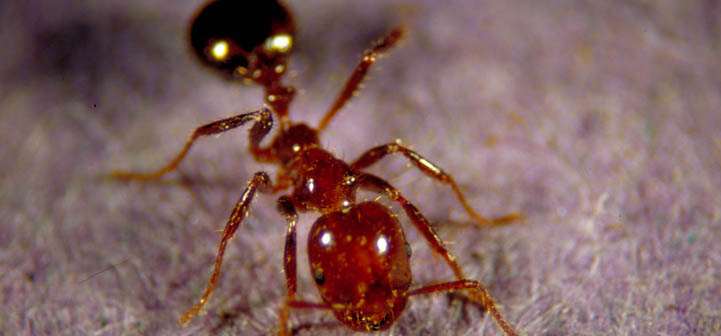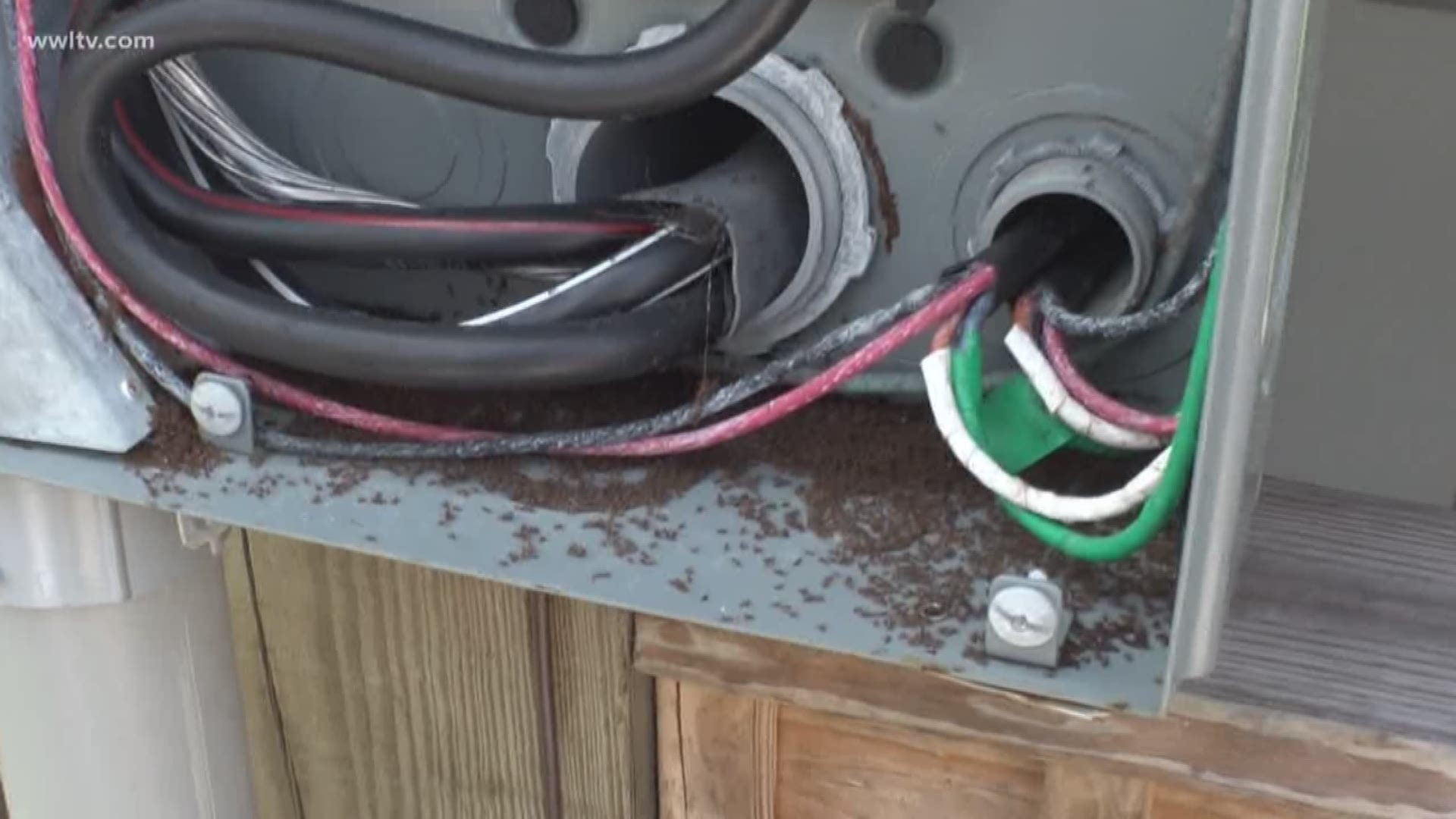Ants can cause electrical problems by nesting in electrical outlets, potentially leading to malfunctions and short circuits. These tiny pests are attracted to the warmth and shelter provided by electrical equipment, posing a risk to the system’s functionality and safety.
Understanding the implications of ant infestations on electrical systems is crucial for homeowners and property owners to prevent costly damage and ensure the smooth operation of their appliances. We will delve into the potential hazards that ants can pose to electrical systems and explore effective strategies to keep them at bay.
Stay informed about the impact of ants on electrical wiring and how to address these issues proactively to safeguard your property.
The Behavior Of Ants
Understanding the behavior of ants is crucial when considering their potential impact on electrical systems. These tiny creatures exhibit a range of behaviors that can lead to electrical problems if left unchecked.
Nesting Habits
Ants often seek out warm, dry locations for their nests, which can lead them to electrical equipment. They may establish their nests inside electrical outlets, switches, or even within the walls of a building. This behavior puts the wiring and components at risk of damage from nesting activities such as burrowing and chewing.
Foraging Patterns
Ants are diligent foragers, constantly seeking sources of food and water. In their pursuit, they may come into contact with electrical components and wiring, leading to the potential for electrical short circuits or other malfunctions. The presence of food particles or residues can attract ants and increase the likelihood of their interaction with electrical systems.

Credit: www.scoutpestcontrol.com
Understanding Electrical Problems
Understanding Electrical Problems:
Common Electrical Issues
Electrical problems can disrupt your daily life. Understanding common issues is crucial.
- Flickering lights
- Tripped circuit breakers
- Power surges
Causes Of Electrical Problems
Identifying the root causes of electrical issues is essential to prevent further damage.
- Overloaded circuits
- Faulty wiring
- Poor installation
Ants And Electrical Systems
When it comes to ants and electrical systems, it may come as a surprise that these tiny creatures can cause significant damage. Ants are naturally drawn to electrical systems due to their attraction to warmth and the electromagnetic fields generated by the wires.
Why Ants Are Attracted To Electrical Systems
- Warmth and electromagnetic fields draw ants to electrical systems.
Potential Damage Caused By Ants
- Ants can create nests within devices, causing short circuits.
- Their chewing can damage wires, leading to malfunctions.
- Accumulated debris from ant activity can overheat systems.
Case Studies
Case studies are essential to understand how ants can cause electrical problems in various settings. Real-life examples provide valuable insights into the potential dangers that ants pose to electrical systems. In this section, we will explore specific instances where ants have caused significant electrical issues.
Real-life Examples Of Ants Causing Electrical Problems
Ants infiltrating electrical systems can lead to various problems, and real-life examples illustrate the severity of these issues. Let’s delve into some compelling case studies that demonstrate the impact of ants on electrical systems.
Prevention And Control
Preventing and controlling ant infestations in your home is key to avoiding potential electrical problems. By taking proactive measures, you can protect your electrical system and preserve the safety of your home. Here are some effective ways to prevent and control ants in your living space:
Sealing Entry Points
To keep ants from gaining access to your home, it’s crucial to seal all possible entry points. Ants are incredibly tiny creatures and can squeeze through even the tiniest gaps. To ensure your home remains ant-free, inspect your property for any cracks, gaps, or holes. Seal them off using caulk or weatherstripping. Common entry points to pay attention to include gaps around windows and doors, cracks in the foundation, and spaces around utility pipes.
Regular Maintenance
Ongoing maintenance plays a vital role in preventing ant infestations. By implementing regular cleaning practices, you can reduce the likelihood of attracting ants. Here are some maintenance tips to follow:
- Keep your home clean and free from food debris. Wipe spills immediately and store food in tightly sealed containers.
- Regularly empty garbage cans and ensure tight-fitting lids.
- Remove pet food and water dishes when not in use.
- Trim tree branches and shrubs away from your house to eliminate any potential entry points.
- Fix any plumbing leaks promptly, as moisture attracts ants.
Natural Deterrents
Using natural deterrents can be an effective way to repel ants and prevent them from entering your home. Here are some natural remedies that can be used:
- Sprinkle cinnamon, black pepper, or dried mint leaves near entry points to create a barrier that ants don’t like to cross.
- Place bay leaves or cucumber peels in areas prone to ant activity.
- Using vinegar, lemon juice, or a mixture of both, wipe down surfaces and countertops to deter ants.
- Planting ant-repelling herbs like mint, lavender, or sage near entry points can help keep ants at bay.
By following these prevention and control methods, you can protect your home from ant infestations and avoid potential electrical problems that may arise from their presence. Implementing these strategies will not only ensure the safety and integrity of your electrical system but also provide you with peace of mind.

Credit: ant-pests.extension.org
Professional Help And Extermination
If you suspect that your home may have an ant infestation causing electrical problems, it is essential to seek professional help immediately. Ignoring this issue can lead to further damage, including electrical shorts, malfunctioning appliances, and even electrical fires. Tackling the problem on your own can be challenging, as ants are persistent creatures and eliminating them entirely requires expertise and specialized techniques.
When To Seek Professional Assistance
If you notice any of the following signs, it is time to reach out to a professional pest control service:
- Frequent power outages or surges
- Appliances or electrical devices behaving erratically
- Visible ants crawling near electrical outlets or wiring
- Unusual buzzing or crackling sounds coming from electrical sockets
On observing any of these signs, it is imperative to contact a qualified pest control professional. They will conduct a thorough inspection and assess the extent of the ant infestation to determine the appropriate course of action.
Safe And Effective Extermination Methods
Professional exterminators employ a range of safe and effective methods to eradicate ants and prevent further electrical problems. These methods include:
- Identifying and eliminating ant nests: Exterminators are skilled at locating the ant nests and eliminating them to prevent ants from returning.
- Bait stations: These strategically placed stations attract ants and effectively eliminate entire colonies.
- Insecticides: Pest control professionals use specialized insecticides that are safe for humans but deadly to ants.
- Sealing entry points: Exterminators identify and seal any cracks, crevices, or gaps that ants may use to enter your home.
- Regular monitoring: Pest control professionals provide ongoing monitoring and follow-up treatments to ensure the ant infestation is completely eradicated.
By relying on professionals for ant extermination, you can be confident that your electrical problems will be resolved safely and effectively. Remember, acting swiftly when noticing the signs of an ant infestation is crucial in preventing further damage and protecting your home from potential electrical hazards.

Credit: cheapahotwater.com.au
Frequently Asked Questions For Can Ants Cause Electrical Problems
Can Ants Cause Electrical Problems?
Yes, ants can cause electrical problems. They are attracted to the warmth and vibration of electronic devices, and they can crawl into power outlets, wiring, and circuit boards. This can lead to short circuits, damaged components, and even electrical fires.
It is important to keep your home clean and seal any openings where ants can enter to prevent these issues.
Conclusion
Ants can indeed cause electrical problems due to their nesting and foraging behaviors. It’s important to be vigilant and take proactive measures to prevent ant infestations in your electrical systems. Regular inspection and maintenance can help mitigate the risks and ensure the safety and efficiency of your electronic devices.

I’m MD Tanvir, and I bring years of expertise gained from working closely with pest control companies to the forefront. My journey in the industry has inspired me to launch Bug Battler, a platform aimed at equipping people with the know-how to combat pests autonomously. Through Bug Battler, I aim to empower individuals with practical insights to tackle pest infestations effectively.

